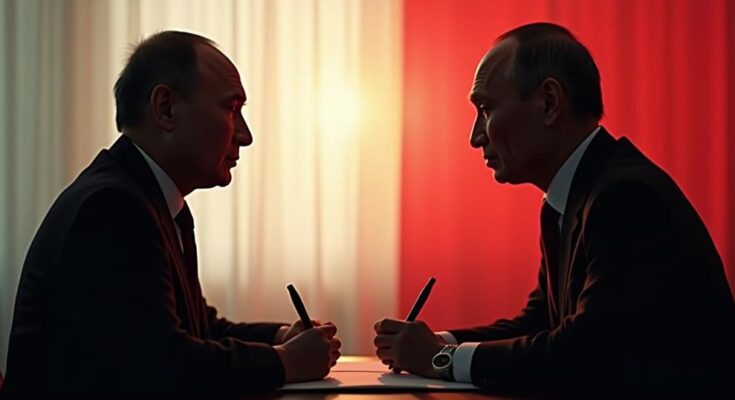Indonesia and Russia signed an extradition agreement to strengthen cooperation in combatting transnational crime, marking Indonesia’s first such agreement with a European country. Minister Yasonna Laoly emphasized its importance for addressing crimes such as cybercrime and money laundering. The treaty builds upon previous mutual legal assistance efforts and aims to enhance both nations’ standing in international law enforcement circles.
On Friday, Indonesia and Russia formalized an extradition agreement aimed at bolstering collaboration in combatting transnational criminal activities. This marks a historic milestone as it is the first extradition accord Indonesia has established with a European nation. Indonesian Minister of Law and Human Rights, Yasonna Laoly, emphasized the significance of this agreement, stating, “This agreement is a very important step because it will help Indonesia to take legal actions in combating transnational crimes, ranging from cybercrime, money laundering, narcotics, corruption and others.” While the specifics of the agreement were not disclosed, Minister Laoly mentioned that extradition would serve as a primary option for repatriating criminal suspects, as it is a formal and binding mechanism, compared to deportation which relies on immigration channels. This extradition agreement builds upon a mutual legal assistance agreement (MLA) signed in Moscow on December 13, 2019, further enhancing the legal partnership between Indonesia and Russia. Minister Laoly acknowledged Russia’s strategic standing as a permanent member of various international bodies, including the United Nations Security Council and the Group of Twenty (G20), expressing hopes that this partnership would strengthen Indonesia’s stance in international security and law enforcement. Russian Justice Minister Konstantin Chuychenko commented on the agreement’s significance in combating transnational crime, asserting that it would also address cooperative legal questions and improve regulatory frameworks in multiple sectors. This initiative aligns with President Joko Widodo’s vision for Indonesia to join the Financial Action Task Force (FATF), aimed at enhancing the country’s capacity to maintain stability and integrity within its financial systems while combating money laundering and terrorist financing.
The extradition agreement between Indonesia and Russia represents a strategic move in international relations and law enforcement, enabling both nations to tackle cross-border criminal activities effectively. This cooperation is particularly pertinent in light of global concerns surrounding issues such as cybercrime, terrorism, and organized crime, underscoring the importance of international legal frameworks in ensuring justice and security. The partnership may also enhance Indonesia’s global standing, given Russia’s influential role in international governance and economic forums. Furthermore, this agreement signifies Indonesia’s ongoing efforts to integrate more fully into the international legal community, as demonstrated by its previous signing of the mutual legal assistance agreement with Russia.
In conclusion, the extradition agreement between Indonesia and Russia is a crucial advancement in the fight against transnational crime, reflecting both nations’ commitment to enhanced legal cooperation. It represents the first such agreement between Indonesia and a European state, symbolizing a deepening relationship that is poised to foster broader international collaboration. Additionally, this treaty aligns with Indonesia’s objectives to bolster its legal frameworks against financial crimes and enhance its global reputation.
Original Source: www.voanews.com




